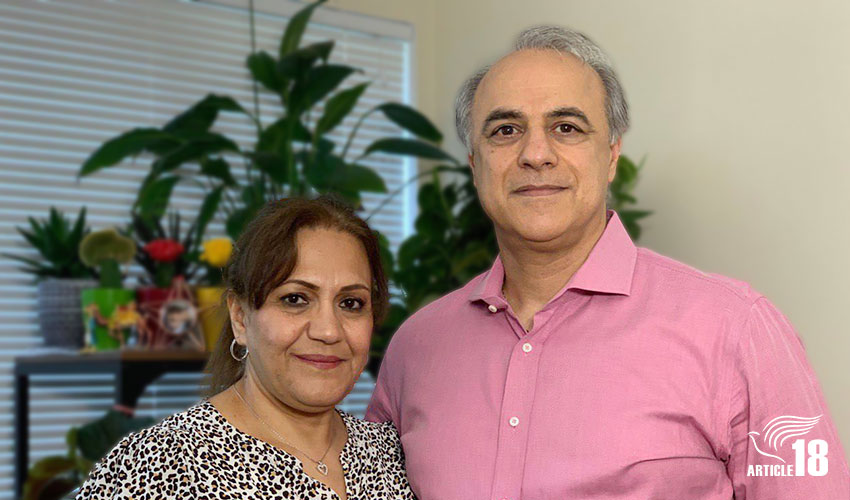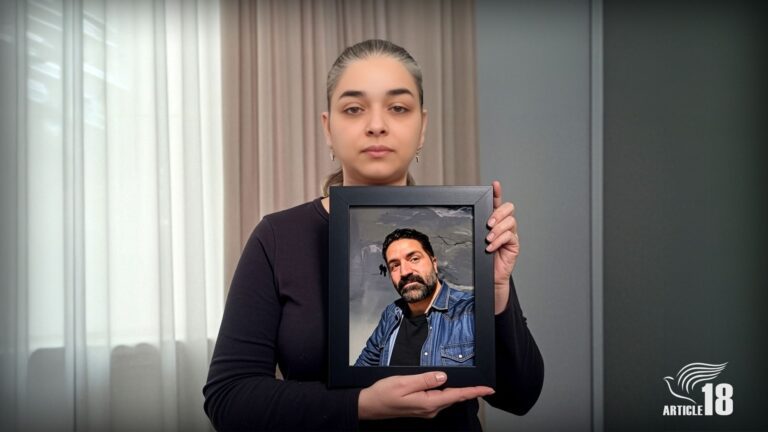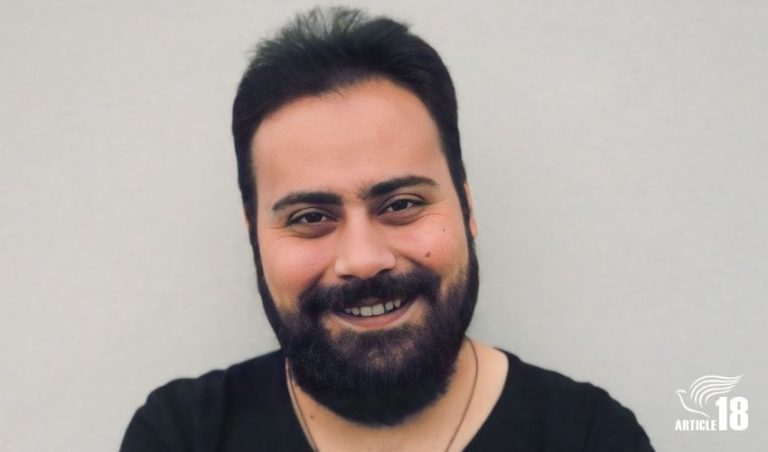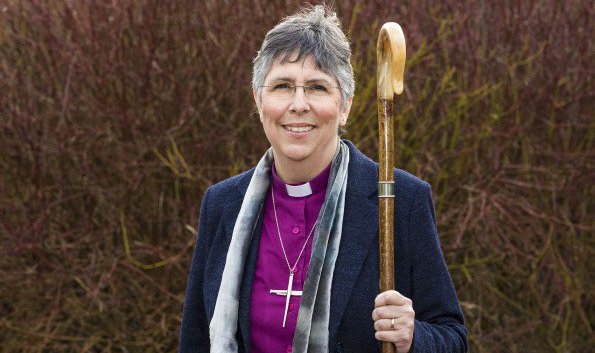
Rev Farhad Sabokrooh was 15 years old when he became a Christian in 1979, the same year religious fervour among Iran’s Muslims brought the exiled Ayatollah Khomeini back as the head of a new Islamic Republic.
From the very beginning, then, the young Christian was swimming against the prevailing tide.
And so it continued, as the young man moved into church leadership, running a church in his home in Ahvaz, southwest Iran, for 25 years, before his eventual imprisonment for “propaganda against the regime”.
And with Rev Farhad and his wife Shahnaz’s arrest at Christmas 2011 also came the forced closure of their church, and all their years of hard work.
Rev Farhad called it “the worst feeling I have ever had”, to think of all they had built over the years suddenly crumbling.
But, in truth, and as Rev Farhad knew only too well, the writing had been on the wall for many years, the pastor having been summoned regularly for interrogation at the Ministry of Intelligence ever since his first summons in 1994.
As he once complained to an interrogator: “For 17 years, you have been summoning me to the Ministry of Intelligence, bringing me here and interrogating me repeatedly. What do you want from us? If I had committed manslaughter, I would have been imprisoned for 15 years, and then it would be over. But for 17 years, you have been constantly interrogating me, and you aren’t stopping!”
Rev Farhad’s first summons coincided with the disappearance of the head of the denomination of which Rev Farhad had become a part, the Assemblies of God.
Bishop Haik Hovsepian was later found dead, and Rev Farhad said he had no doubt, listening to his interrogators, that Haik’s blood was on their hands:
“He said: ‘If you think you can make a name and build status for yourself like Haik, you should know that we won’t give you this opportunity. Whenever we want, we’ll bring the same disaster to you as we did to Haik!’”
A decade later, Rev Farhad was among nearly 100 Christians to have gathered together at an annual planning meeting of the AoG at the Garden of Sharon, a retreat centre near Tehran, when suddenly 20 armed agents climbed the walls of the compound.
The raid came as a surprise, Rev Farhad said, as the AoG had each year sought, and been granted, permission from the local police station to hold the meeting.
Indeed, Rev Farhad said the same was initially true of the church that met in his home: that the authorities were aware of it and did not oppose it until his first summons some seven or eight years since the church was founded.
But by the time of the 2004 raid, the battle-lines had clearly begun to shift.
Indeed, the arresting agents who bussed every single attendee to a nearby governor’s office – for them to sign commitments to refrain from continuing their Christian activities – told them they had been given a mandate from the highest security office in the land, and that it was all part of a new 10-year plan:
“They told us: ‘According to the 10-year plan that we are working on, all Evangelical churches, including all branches of the Assemblies of God, must stop their activities. From now on, your churches don’t have the right to evangelise and advertise your beliefs, especially among Muslims; you don’t have the right to accept new members; you should inform the Ministry of Intelligence before doing any activity; you mustn’t baptise anyone; even if it is an Armenian or Assyrian [recognised as Christians] who is going to be baptised, you must inform the Ministry of Intelligence.’”
The nine senior leaders among the group, including Rev Farhad, were told they would be detained until they had reached an “agreement”, though Rev Farhad said “really they only intended to impose on us what they had already predetermined”.
“Whether you like it or not, we are the leaders and rulers of this country and so we must know what is happening in the churches, and this is our most natural right,” the interrogators said. “We must know what decisions the churches make, what thoughts they have. This is an Islamic country, and we cannot accept that through the propaganda of churches Muslims become Christians and convert to Christianity. One of the ideals of our revolution is that the rest of the nations become Muslims, not that Muslims become Christians, which goes against the interests of the Islamic government.”
The concessions the pastors ultimately felt they had no choice but to make – such as providing the names of members to the Ministry of Intelligence; not baptising anyone without their permission; not evangelising to Muslims; nor conducting church activities outside of church buildings – later “became the basis for the Ministry of Intelligence to close our churches”, according to Rev Farhad.
He said it was clear from that moment on that these were “the last days” of Persian-speaking church buildings in Iran.
And so it proved, even if the process took several years.
On 23 December 2011, as Rev Farhad, his wife and their three children gathered to celebrate Christmas with their church, 40 armed agents, this time, arrived and, again, bussed off everyone to a Revolutionary Court to sign commitments to have no further involvement in the church.
And, this time, it truly was to be the end of the road for the Ahvaz church.
Rev Farhad had tried to encourage one of his members during his arrest that perhaps the next week they’d be able to meet again, when the arresting agent shouted: “No! There is no more church! The Assemblies of God Church will no longer exist in Khuzestan Province!”
Rev Farhad, his wife Shahnaz, and two other church members who had helped lead the church were later sentenced to a year in prison.
They began their sentences in May 2013, the same month the pastor of the Central Tehran Assemblies of God Church was arrested, and that church also forcibly closed.
So these would indeed turn out to be the last days of Persian-speaking church buildings in Iran, but the beginning of a new wave of house-churches across Iran, as church leaders sought new ways in which to continue their ministries.
Yet for some, like Rev Farhad and his family, all avenues seemed to have been closed.
“Practically, I couldn’t do anything useful after my release,” Rev Farhad reflected.
After serving their sentences, he and his wife were given two months to leave the country, and told they would face years more in prison if they failed to leave, and even threatened with a fate like Haik’s.
And so they left, and, in Rev Farhad’s words, “lost everything we had accumulated in 30 years of living together”, fleeing to Turkey, where they spent nearly three years, before being resettled in the United States in 2016, where they continue to serve the Persian-speaking church.
You can read Rev Farhad and Shahnaz’s full Witness Statement here.



0 Comments
Trackbacks/Pingbacks